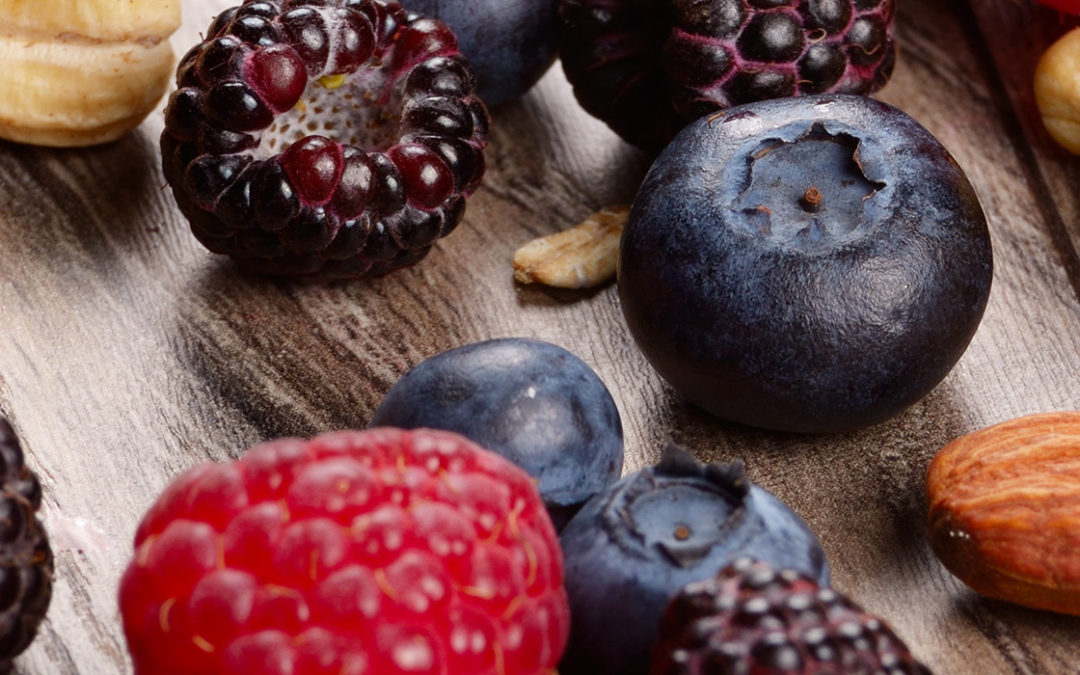DO WE NEED ANTIOXIDANTS?
Antioxidants are highly promoted by media, some physicians and dietitians, and nutritional industries for a variety of reasons. They are said to help slow the aging process or help prevent vision loss, cancer, heart disease, strokes, and other chronic diseases. Once it was thought that antioxidants were harmless, but researchers are learning that it might be possible to get too much of a good thing. Very little is known about how much a person should get or about the long-term consequences of gigantic doses of antioxidants.
WHAT ARE FREE RADICALS?
The body generates hundreds of substances called “free radicals” when converting food to energy. Other free radicals are extracted from food or breathed in from the air, and some are generated by the sunlight’s action on the skin and eyes. Once formed, these toxic compounds can start a chain reaction like dominoes. Cells may function poorly or die. Resulting oxidative stress is associated with more than 200 diseases. The scavenger free radical molecules are missing an electron in their outer shells and will do anything to fill them, including stealing electrons from your body’s cellular structures. Such cellular thievery may damage DNA, proteins (enzymes), and cell membranes. When these cells are damaged, your body is damaged, creating the foundation for disease and accelerated aging.
WHAT ARE ANTIOXIDANTS?
Antioxidants are molecules which can safely interact with free radicals and terminate the chain reaction before vital molecules are damaged. Although there are several enzyme systems within the body that disarm free radicals, the principal antioxidants are vitamin E,
beta-carotene, vitamin C, and selenium. When these antioxidants neutralize free radicals by donating an electron particle they are left with a small problem. The antioxidants are now missing an electron and have become free radicals themselves. The body cannot manufacture these antioxidants, so they must be supplied in your diet. Does Research Support Use of Antioxidants? In theory, antioxidants have the potential to improve or prevent several chronic diseases. But using them does not mean that they will resolve your health problems.
DIFFERENT ANTIOXIDANTS BENEFIT DIFFERENT PARTS OF THE BODY
There are a wide range of antioxidants found in nature, and because they are so varied, different antioxidants provide benefits to different parts of the body. For example, beta-carotene (and other carotenoids) is very beneficial to eye health; lycopene is beneficial for helping maintain prostate health; flavonoids are especially beneficial for heart health; and proanthocyanidins are beneficial for urinary tract health.
ANTIOXIDANTS AND SKIN HEALTH BENEFITS
When skin is exposed to high levels of ultraviolet light, photo- oxidative damage is induced by the formation of different types of reactive species of oxygen, including singlet oxygen, superoxide radicals, and peroxide radicals. These forms of reactive oxygen damage cellular lipids, proteins, and DNA, and they are the primary contributors to erythema (sunburn), premature aging of the skin, photo dermatoses, and skin cancers. Astaxanthin, followed by beta-carotene combined with vitamin E has been shown to be one of the most powerful antioxidant combinations for helping protect the skin from reactive species of oxygen.
ANTIOXIDANTS AND IMMUNE SYSTEM SUPPORT
Singlet oxygen can compromise the immune system, because it can catalyse production of free radicals. Astaxanthin and Spirulina have been shown to enhance both the non-specific and specific immune system, and to protect cell membranes and cellular DNA from mutation. Astaxanthin is the single most powerful quencher of singlet oxygen, and is up to ten times stronger than other carotenoids (including beta-carotene), and up to 500 times stronger than alpha tocopherol (Vitamin E), while Spirulina has a variety of antioxidants and other substances that are beneficial in boosting immunity.
ADDITIONAL WAYS ANTIOXIDANTS CAN HELP BENEFIT
Increasing one’s antioxidant intake is essential for optimum health, especially in today’s polluted world. Because the body just can’t keep up with antioxidant production, a good amount of these vitamins, minerals, phytochemicals, and enzymes must come from your daily diet. Boosting your antioxidant intake can help provide added protection for the body against:
- Heart problems
- Eye problems
- Memory problems
- Mood disorders
- Immune system problems
Always seek the advice of your physician or qualified healthcare provider with any questions or concerns about your health. Check with your doctor before beginning any exercise program.


Recent Comments